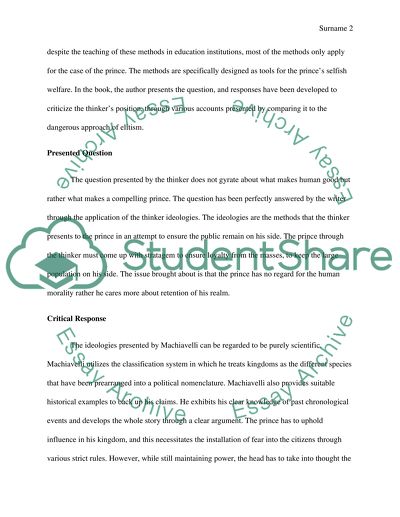Cite this document
(“Machiavelli the Prince Essay Example | Topics and Well Written Essays - 2000 words”, n.d.)
Retrieved from https://studentshare.org/history/1440178-machiavelli-s-the-prince
Retrieved from https://studentshare.org/history/1440178-machiavelli-s-the-prince
(Machiavelli the Prince Essay Example | Topics and Well Written Essays - 2000 Words)
https://studentshare.org/history/1440178-machiavelli-s-the-prince.
https://studentshare.org/history/1440178-machiavelli-s-the-prince.
“Machiavelli the Prince Essay Example | Topics and Well Written Essays - 2000 Words”, n.d. https://studentshare.org/history/1440178-machiavelli-s-the-prince.


